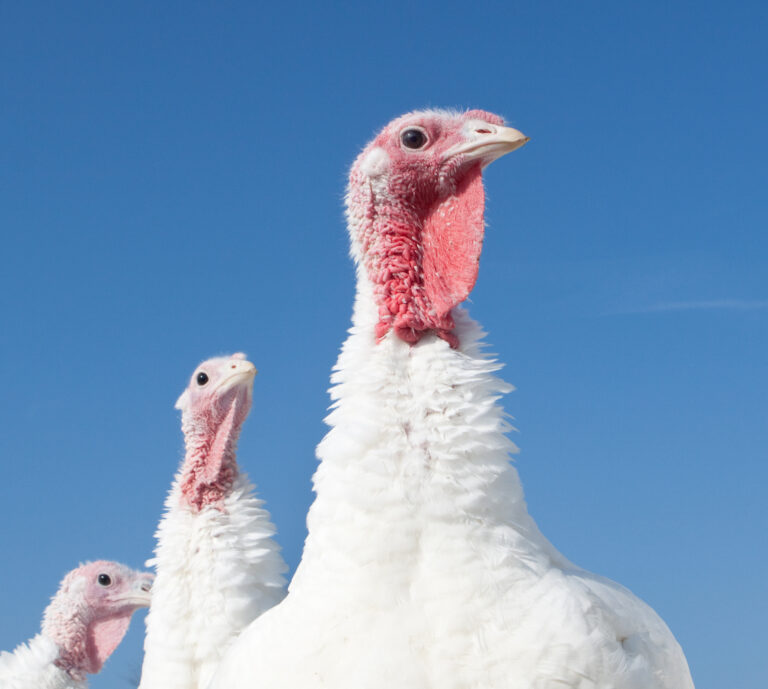Andrew Fothergill, National Poultry Advisor from ForFarmers, offers his advice on the importance of nutrition in the final stages.
Given a clear run and all things favourable, even the best laid plans can be challenged as turkeys develop.
At the start of the season, producers need to source a selection of day-old poults so they can deliver a spread of bird weights to match a predicted orderbook. Given recent years, predicting what customers want and where at Christmas is not a precise science, and farmers need to hope that their spread of available weights will find a home for every bird.
Producers will generally try to keep their poults a single age to best manage age related health challenges, changing housing and environment requirements as the birds grow and develop feather cover. However, there are factors that can alter the target weight for age profile, which can make things more complicated.
We’ve recently had AI to contend with – and the possibility of being able to freeze birds killed in a safer growing season to sell at Christmas as either frozen or defrosted. This may result in the desire to grow birds as fast as possible, to get the finished product safely locked away from any possible disease threat.
There’s also climate to consider, which is another challenge and can interfere with healthy growth and development. We have traditionally enjoyed crisp autumnal mornings, cold and bright that well-developed, feathered turkeys thrive in with a healthy appetite. Turkeys naturally eat well and deposit an attractive layer of fat under the skin, which when chilled, presents as a clean white skin. With the effects of climate change, milder autumns can depress their appetite and the birds may not get the same calorie intake to drive the desired amount of fat deposition. A bird without “finish” doesn’t present as such an attractive carcass as the flesh colour is visible through the skin.
The Finishing Stage
ForFarmers Early Turkey Finisher has been developed to support producers who might be facing such challenges around achieving the desired weights in their birds, or those who need a solution to fast track growth to a suitable finished quality.
From eight to ten weeks the bird’s daily growth rate will start to slow, and their skeletal development will be almost complete. During this time, a higher percentage of weight gain is muscle, so ensure that you support this, by optimising the calorie to protein ratio for lean tissue growth, but with intramuscular fat deposition, to deliver succulence in the final meat product.
High in calories, the Early Turkey Finisher diet is formulated with a greater energy to protein ratio than the rest of the Traditional Turkey range and typically fed to birds around 8 or 9 weeks of age, but there are no fixed rules.
The diet will help ensure that the bird grows as fast as it’s genetically programmed to and will concurrently deposit both lean and fat – whereas our standard regime is designed to grow birds to full maturity, allowing the natural development of muscle in the rearing phase followed by fat deposition in the finishing phase.
With this phase often the least valued, by continuing to focus on nutrition will make an enormous difference to the quality of the final meat product.


